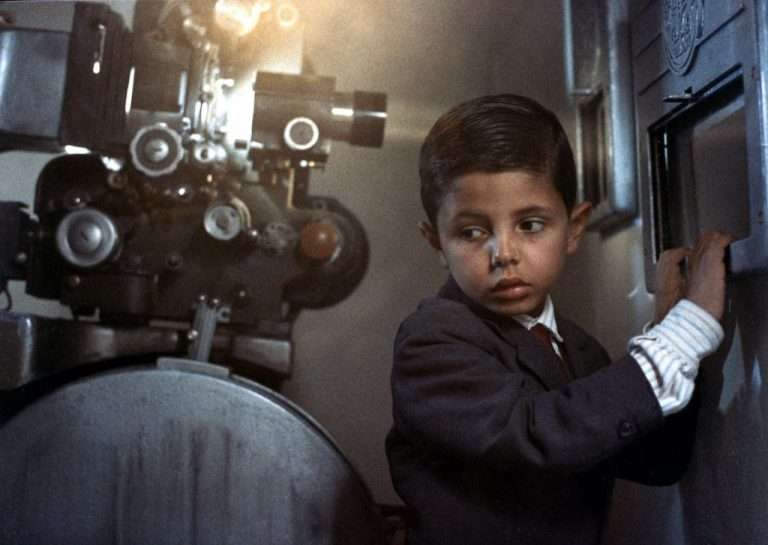Lately, a film titled “Mrs.” (2023) has sparked conversations for its stark, unflinching portrayal of how patriarchy is reinforced through the kitchen. The kitchen has been projected as a space of negotiation and submission for women, while the men remain distantly aloof from that space, literally and figuratively. A lot of people have already analysed the film from a gender perspective, painting it in all hues and colours of feminism. Some people see this film as feminist propaganda to dismantle the sanctity of Indian families.
What I will be trying to achieve here is to perceive the question of identity, power, agency, and spaces of negotiation in terms of the caste-class-gender dynamics of the narrative. How patriarchy nurtures our idea of labour and how the emancipation of a woman can itself come at the cost of someone else’s labour is something to ponder upon. The caste and class identity of the people involved also play a vital role in determining their bargaining power in the kitchen in specifically, and life in general.
Domestic Work as ‘Duty’
“Mrs.” (2023) starts with two contrasting images juxtaposed with each other- one of the female protagonist singing and dancing her heart out, fulfilling her passion, and on the other hand, a female hand involved in cooking different delicacies. This scene foreshadows the whole narrative of the film, wherein the emancipation of a woman is based on her ability to delegate the responsibility to another female. In the first scene, the woman most probably appears to be the mother of the protagonist. After the marriage of the protagonist, this role is taken by the mother-in-law till the time the new bride is able to take over her domestic responsibilities completely.
Kiran Rao’s ‘Laapataa Ladies’ Walks, so Indian Feminism can Run
The only other time the woman is allowed some respite is during her menstruation, when her domestic responsibility is taken over by a paid domestic help. But this respite has always been temporary and transient in nature, and relies upon the capability of another woman to take up the responsibility. In the case of the domestic help, the reluctance of the male family members also arises from her marginalized caste–class identity. The daughter-in-law’s return to household work offers them a temporary respite, allowing their elitist and often condescending notions of caste and class to remain unchallenged for a while. So while for a daughter-in-law, the few days of her menstruation are her period of respite that she yearns for, the male members see it as an unnecessary obstruction to their seamless daily life, ruptured by a lower caste and lower-class domestic worker.
Lack of a Helping Hand
As pointed out by multiple scholars, in a patriarchal setup, women are not given rights; they are provided concessions, just enough to not make them revolt against the systematic and perpetual oppression. When the protagonist yearns for a helping hand, it is ignored because a woman asking for support for doing household chores is seen as a sign of her lackadaisical attitude. The climax of the film, where the protagonist finally revolts against her husband and in-laws, shows the shrinking space of bargaining on the part of the women.
The men get involved in the process almost always as the granter and not as the grantee, giving them the power of positionality to impact and often dictate the decisions on the womenfolk of the household. Men in the house are always shown ‘dictating’ terms from the side of the bed they prefer to sleep on to their morning routine to their choices and interests, and the women are expected to comply, adjust, and adapt according to that. In that context, everything a man does has a value attached to it- if they are doing a job, they are doing it for the family, and hence they have the right to decide whether the women of the household should have career aspirations or not.
Technology as Means of Emancipation
Thirdly, the film Mrs. (2023) talks about technology vs tradition in the ambit of how it emancipates women from their labour. Even though modern technology is available in the house of the protagonist, she is discouraged from using it as it is not considered ‘authentic’ enough by the patriarch of the family. Yet again, the sense of aesthetics of a man dwells upon the labour of a woman.
Another patriarchal argument in favour of exploiting her labour is regarding her relevance in the absence of household work. The female protagonist is not allowed to take up a job, nor is her dancing routine considered respectable by her husband and in-laws. By confining her interactions with the outside world, her existence is reduced to the household, where her notion of leisure is dismissed, since domestic labor is treated as an informal space with little economic value and is rarely acknowledged as real work.
The husband works in a hospital, making use of all the modern technology to conduct his work efficiently, but the same requirement for a woman is dismissed as “privilege”. Later, when the female protagonist visits her friend, she finds her using a dishwasher, which gives the young couple the necessary time to spend together in leisure. Here, the household work is not prioritised over the dignity of a woman. The opening up of the space in this scene allows the woman to say unhinged things that cross the limits of traditional morality allowed in a patriarchal society. But as soon as she reaches home, she has to face the consequences of her ‘transgression’. This raises our fourth point.
Interview with Sanya Malhotra: Actor, Mrs. (2024): ‘Women Have Made This Look Easy, But It’s Not’
Women and the Patriarchal Code
The emancipation of a woman to be herself is placed on the pedestal of the moral code of the family. The female protagonist is not allowed to do professional dancing as it isn’t considered honourable for her family. When she tries to seek solace and support in the womenfolk of the family, she is either met with resistance or painful silence. Her mother-in-law, despite having a PhD in Economics, sacrifices herself on the altar of patriarchal code and has internalised her oppression as her fate that she cannot alter. Her aunt, on the other hand, openly resists her attempts to be emancipated. A good woman in such a household is supposed to be on her toes to serve her husband and in-laws, so when she tries to plug in her music and is not able to cater to her father-in-law on time, she is met with taunts.
Similarly, she is supposed to be a passive receiver of her husband’s attempts to treat her like a sex toy because women are not supposed to enjoy sex in a traditional family. She finally chooses her dignity and career over a wretched life, but at the cost of her relationship. Even her parents are not very happy with her decision to break off her relationship, as it doesn’t fit into the patriarchal discourse of “serving the in-laws till the death”. On the other hand, the in-laws find a replacement for one girl with another, who can be submissive and better align with the demands of a patriarchal society.
Conclusion
All in all, “Mrs.” (2023) not only addresses the question of gender parity but also how the patriarchal order devalues the labour of women and, in the Marxist parlance, alienates the person from the product and process of her labour. The kitchen is the space that ends up dismissing the agency and identity of a woman as an individual and makes her existence subservient to the needs of the patriarchal society, while keeping her detached from the fruits of her labour.







